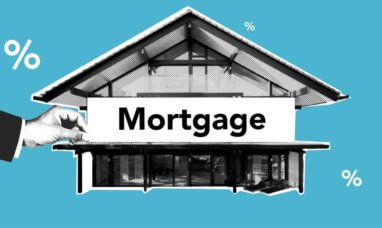If you are looking to take the next step towards buying a house, congrats! Owning a home is a big commitment, and even the decision to begin searching shouldn’t be taken lightly. As you begin researching and looking into mortgages, you may notice your current credit score plays an integral role in the home buying process and can determine the type of mortgage rate you qualify for. Here’s how credit scores affect your mortgage rate.
Introduction
Whether you are looking to get a mortgage with a 705 credit score or don’t have a score at all, it’s important to research your loan options and lenders to get the most competitive interest rate. It might not seem like a big deal to try to strive for the lowest mortgage rate possible if you can afford the house you want. However, when you start to look at how those percentages apply to 15-year-fixed-rate or a 30-year-fixed-rate, the fees start to add up over the years.
Let’s dive into why your credit score affects your mortgage rate and what you can do to better prepare yourself to purchase the home of your dreams at the rate you desire.
Why Your Credit Score Matters
Your credit score is more than just a number; it’s a guide banks use to understand your financial history. It’s an inside look at your financial health that lenders use to decide if you are capable of making timely payments and have a history of making smart financial choices. In many ways, a high credit score is somewhat like an insurance policy for your lender. The good news is, even with a not-so-great credit score, you can still purchase a home. However, you will be subject to higher mortgage rates.
While this may not seem like a big deal, a house has a large price tag, and small changes in percentages for your rate can make a huge price difference over time. Of course, your credit score isn’t the only determining factor when it comes to landing the affordable rate you desire. Your debt-to-income ratio and financial history all play a fundamental role in your eligibility and can help you save money over time.
What Credit Score Do I Need?
Lenders often look at your FICO score to determine your eligibility and rates for a mortgage. Small changes in your credit can result in drastic changes to the price that you pay over time.
According to Experian, this is how credit scores range:
-
-
- A FICO Credit Score 800 or higher is considered exceptional credit
- A FICO Credit Score between 740-799 is considered great credit
- A FICO Credit Score 670-739 is considered good credit
- A FICO Credit Score 669 and below is considered fair or poor credit
-
Simply put, your credit score will determine the type of rate you are given by lenders for your mortgage. Your rates vary by the lender, which is why it’s important to shop for the best mortgage solution that fits your needs.
How Mortgage Rates Can Vary By Credit Score
The average American FICO score in 2021 sits at 711. This means that most Americans can qualify for a mortgage rate with credit that is considered good. However, what if a payment is missed? Or if an extra expense pops up, that wasn’t accounted for in your monthly budget?
To break it down, a mortgage loan with a 705 credit score may get you a decent rate since this is considered “good credit,” but it may be too close to falling under 700 when combined with your debt-to-income ratio. However, if your 722 credit score mortgage moves up to a 796 credit score mortgage, you may see a positive change in the rates you are offered. All of your finances play a part when it comes to getting the house of your dreams, and you may want to consider building your credit to a comfortable score before locking in a mortgage rate or starting your house shopping.
Types of Mortgages Where Credit Score Matters Less
If you don’t have an established credit score, there are other mortgage options that don’t consider your credit score for eligibility. These types of mortgages are:
-
-
- FHA Loans: Loans for first-time home buyers and repeat buyers that are backed by Federal Housing Administration
- USDA Loans: Loans backed by the U.S. Department of Agriculture
- VA Loans: Loans for Veterans or active members in the military
-
These loans all have different specific requirements and can be discussed with your lender to determine your eligibility. If you qualify, then it means that you don’t need that credit score of 781 for a mortgage with a good rate!
What You Can Do to Build Your Credit Score
There is a lot that goes into building a good credit score you can be happy with, so don’t get discouraged when it takes some time. For starters, you can:
-
-
- Make sure you are making all of your payments on time
- Only use 30% of your overall credit limit
- Don’t close any of your old credit cards
- Consider paying down your credit card debt, from highest interest to lowest
- Don’t over shop mortgages. Too many credit inquiries can have an impact
-
All of these factors play a part in your overall credit score and can help you get where you need to be financially.
Don’t forget that making any major financial purchases, like buying a car, or opening new lines of credit, can also impact your mortgage rate. As you start to work towards and maintain a credit score you can be proud of, it’s important to also be mindful of your other financial decisions.
If you are just starting your home buying journey, you are taking the right steps by doing your research and looking at your options. Remember: the home buying process can be frustrating and tedious, but it pays off in the end. Start looking at your options, making minor changes to your financial lifestyle, and start building the credit score you deserve to get the mortgage rate you desire.
Featured Image: Megapixl






